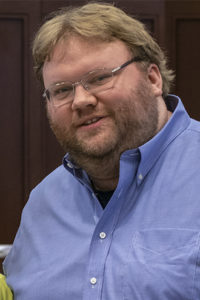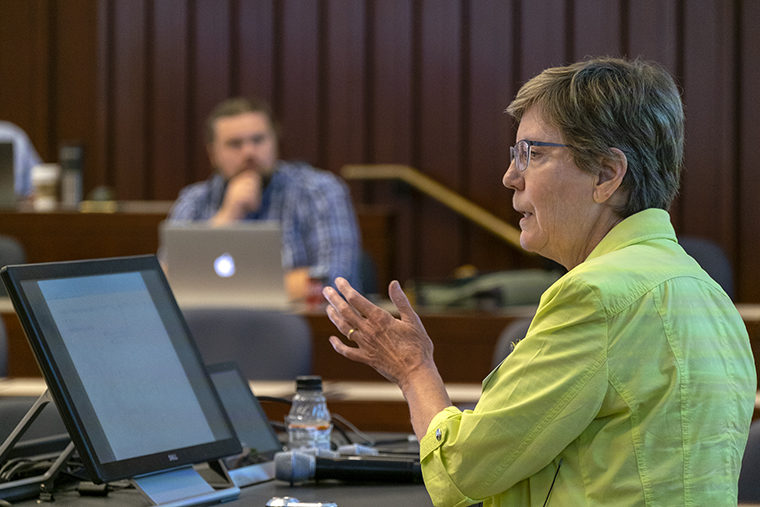A National Science Foundation-funded workshop recently brought more than 75 statistics researchers to Washington University in St. Louis. This was the third consecutive year that the event has been hosted on the Danforth Campus, and the first since the math department changed its formal name to the Department of Mathematics and Statistics in Arts & Sciences in the summer of 2018.

Post-selection inference is a research area driven by scientists’ need to analyze increasingly complex and large sets of data. It is one of the most active topics in statistical theory and methodology development.
“These workshops bring together mathematical statisticians with an emphasis on developing accurate and powerful procedures for inference after model selection,” said Todd Kuffner, assistant professor in mathematics, “that is, procedures with small error rates, and those that are capable of detecting weak evidence.” Kuffner organized the Workshop on Higher-Order Asymptotics and Post-Selection Inference (WHOA-PSI) with colleagues from Rutgers University and the University of California, Davis.
The workshop attracted a diverse set of researchers including not only four COPSS Presidents’ Award winners — statistics’ equivalent of a Fields Medal — as well as junior faculty, PhD candidates, and researchers from minority backgrounds that have been historically under-represented in STEM fields. Fifteen of the 35 invited speakers were female statistics researchers, Kuffner noted. Washington University graduate student Qiyiwen Zhang presented a poster at the event.
At Washington University, six of the 26 faculty members in the Department of Mathematics and Statistics are statisticians, according to John McCarthy, chair & the Spencer T. Olin Professor of Mathematics, and the growing group now offers both a PhD and master’s degree in statistics.
McCarthy said researchers have gotten very good at gathering large quantities of data in both science and business. “And what we want are meaningful answers, which require doing something intelligent with the data,” he said. “We can’t just have a million pieces of data and press a button to answer a question.”
“Data is changing our world, and there is a field of study, statistical science, that thinks hard about how we learn from data,” said Nancy Reid, professor of statistical sciences at University of Toronto, an accomplished statistician and COPSS Presidents’ Award winner who was one of the speakers featured at the WHOA-PSI.
“Data doesn’t speak for itself,” she said. “You have to know how to translate.”
Other distinguished speakers at the event included Xiao-Li Meng of Harvard University, president of the Institute of Mathematical Statistics; Robert Tibshirani of Stanford University, who invented the “Lasso,” the most popular variable selection method used in the sciences; and Emmanuel Candès, also of Stanford University, a 2017 MacArthur Fellow, who together with Terence Tao invented the field of compressed sensing, one of the most powerful approaches to recovering sparse signals.
